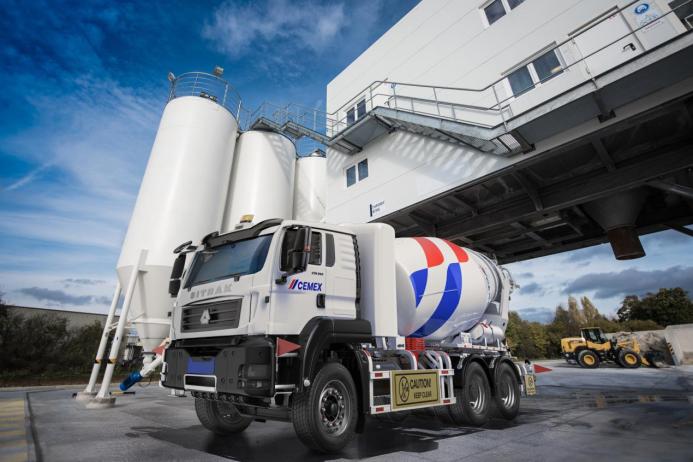The construction industry is rapidly evolving with innovations driven by material manufacturers who are pushing the boundaries of technology, sustainability, and efficiency.
The role of these manufacturers is crucial, as they lay the foundation (literally and figuratively) for the future of construction.
In this article, we explore some of the top construction material manufacturers that are at the forefront of this revolution.
The Importance of Material Innovation in Construction
The construction materials market is expected to grow exponentially, driven by urbanization, infrastructure projects, and sustainable development initiatives worldwide. This transformation is not only about building taller or stronger but also about creating energy-efficient and eco-friendly structures.
Manufacturers play a vital role in driving this change. By developing innovative solutions like self-healing concrete, advanced insulation, and sustainable steel production methods, they are revolutionizing how we construct buildings, bridges, and infrastructure projects.
Top Construction Material Manufacturers Revolutionizing the Industry
1. CEMEX: Pioneering Sustainable Concrete Solutions
CEMEX is one of the largest building material manufacturers globally, and it’s leading the charge toward a sustainable future. The company is heavily invested in reducing its carbon footprint through the development of “Vertua,” its line of low-carbon and net-zero CO2 concrete. Vertua products are designed to minimize environmental impact without sacrificing performance, meeting industry demand for greener building solutions.
Beyond sustainability, CEMEX is also exploring digital integration, including software solutions that enhance the efficiency of construction sites. Their Ready Mix Digital platform helps reduce waiting times and enhance logistics in the concrete delivery process.
2. LafargeHolcim: Innovating with Green Construction Materials
LafargeHolcim is a global leader in building materials, and it has taken significant strides toward innovation. One of their noteworthy innovations is the “ECOPact” range, which offers green concrete solutions with significantly lower carbon emissions compared to traditional materials.
The company’s commitment to sustainability doesn’t stop there—they also produce insulating materials that make buildings more energy-efficient, ensuring less reliance on heating and cooling systems. With their research centers across the globe, LafargeHolcim is also working on using recycled materials and industrial waste to produce high-quality, reliable construction materials.
3. Saint-Gobain: Advanced Insulation and Glass Technology
Saint-Gobain is a key player in producing advanced construction materials, particularly in the fields of insulation and glass. Known for its innovations in energy-efficient building materials, Saint-Gobain manufactures high-performance insulation products, helping reduce energy consumption in residential and commercial buildings.
Additionally, their self-cleaning, electrochromic, and solar-control glass products are revolutionizing how we approach natural lighting, thermal regulation, and aesthetics in construction. With such innovations, Saint-Gobain is pushing towards greener, smarter, and more comfortable building environments.
4. ArcelorMittal: Sustainable Steel Manufacturing
As one of the world’s largest steel producers, ArcelorMittal is continuously innovating in the field of steel construction materials. The company is focused on manufacturing lightweight, high-strength steel solutions that minimize waste and reduce the overall weight of structures without compromising on durability.
ArcelorMittal is also making major strides in carbon-neutral steel production. Their “XCarb” initiative aims to achieve zero carbon emissions in steel production, leveraging renewable energy, carbon capture, and innovative manufacturing processes. Steel is indispensable for infrastructure, and ArcelorMittal’s initiatives are helping make the industry more sustainable.
5. Kingspan Group: Insulation and Building Envelope Expertise
Kingspan Group is a leader in the production of energy-efficient building envelope solutions. Known for their insulated panels, Kingspan’s products are designed to reduce energy requirements for heating and cooling, contributing significantly to energy-efficient construction. Their focus on developing new products with low environmental impact sets them apart as a forward-thinking material manufacturer.
Kingspan’s “QuadCore” insulation is a high-performance material that has greatly improved building efficiency, reducing heat loss and helping meet rigorous energy codes. The company is committed to circularity, aiming to reduce material waste and utilize recycled resources in its manufacturing process.
6. CRH plc: Leading in Diverse Building Materials
CRH is another global giant in the construction material manufacturing sector. Known for its diverse portfolio, CRH produces everything from cement and aggregates to innovative roofing materials. One of CRH’s key innovations is the development of pervious concrete, which helps with water management by allowing rainwater to pass through, reducing stormwater runoff and improving groundwater recharge.
The company is also leveraging digital technology to enhance operational efficiency and improve supply chain logistics, ensuring construction projects have a timely and reliable supply of essential materials.
Key Trends Shaping the Future of Construction Materials
The ongoing revolution in construction materials is shaped by several key trends:
1. Sustainability and Carbon Reduction
As climate change becomes a global priority, many manufacturers are turning toward carbon-neutral and even carbon-negative materials. The use of recycled materials, waste byproducts, and innovations like carbon-sequestering concrete is rapidly growing.
2. Smart and Adaptive Materials
Innovations in smart materials, such as self-healing concrete and phase-change materials for thermal regulation, are transforming how we think about the durability and efficiency of buildings. These materials are capable of responding to environmental changes, making structures more resilient and long-lasting.
3. Digital Integration and 3D Printing
Digital technology is another major player in the future of construction materials. Digital twins, advanced software platforms, and even 3D-printed construction materials are becoming more commonplace, providing manufacturers with new ways to enhance productivity, reduce costs, and meet custom specifications.
Conclusion: A Revolution in the Making
The construction material manufacturing industry is undergoing a profound transformation, driven by sustainability, innovation, and efficiency. Companies like CEMEX, LafargeHolcim, Saint-Gobain, ArcelorMittal, Kingspan, and CRH are setting new standards, making construction more sustainable, adaptive, and resilient. Their contributions are not only changing the way we build but also paving the way for smarter, greener, and more future-proof construction.
For stakeholders in the construction industry, understanding these manufacturers and their innovations is crucial to staying ahead in a highly competitive market. The future of construction is here, and it is being built by these trailblazing manufacturers who are revolutionizing the industry, one material at a time.
Also Read
How steel framing software is revolutionizing modern construction
How waterproofing systems work: Exploring the latest innovations in the industry

